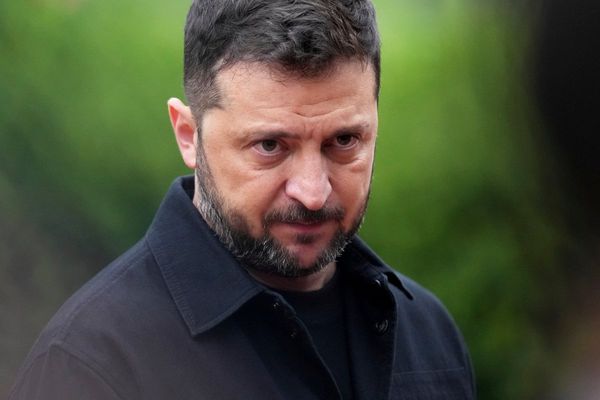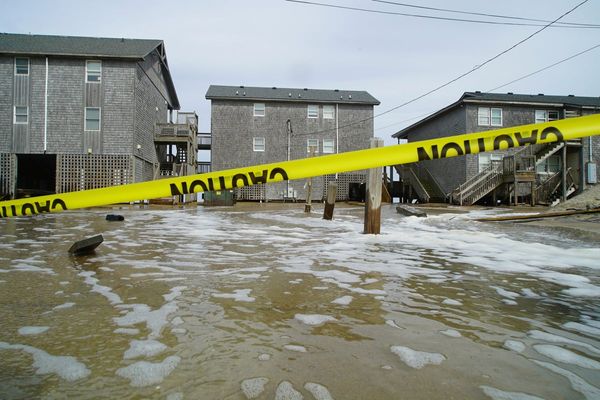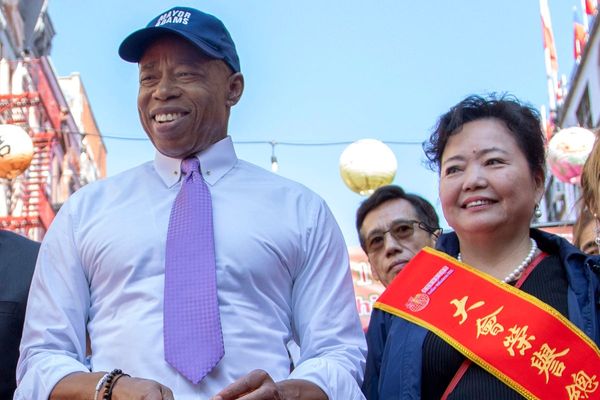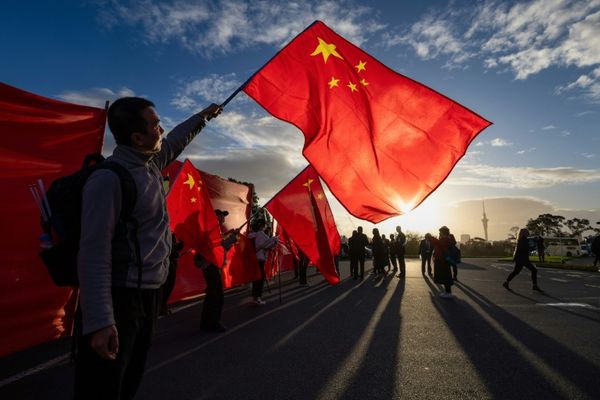WASHINGTON — A day after downplaying Russian tanks moving into a contested region of Ukraine on Monday as "not new," the White House began referring to the troop movements as "an invasion" on Tuesday, setting the table for President Biden to announce additional economic sanctions on Moscow.
Biden is scheduled to address the nation at 10 a.m. Pacific time, the White House said. But it's unclear how much further — and how fast — Biden will go in punishing Russian President Vladimir Putin as he directs Russian forces to expand deeper into Ukraine, as Western allies try to stay unified as they shift from trying to deter a conflict to containing one.
In the first hours of a new conflict in Europe, democratic powers are working to balance the need to punish Putin for violating Ukraine's territorial sovereignty with the awareness that severe economic repercussions may not be enough to force the Russian autocrat to change course. In fact, officials say, Putin may use Western sanctions as a pretext to escalate the crisis.
So far, allies have taken limited to steps in responding to Russia, keeping more far-reaching economic sanctions in reserve as political pressure builds on them to take more robust action.
On Monday, the White House announced that it would impose economic sanctions on the two separatist regions of Ukraine that Putin recognized as independent. But they held off on a larger package of sanctions, which had been agreed to in recent weeks by the leading members of the North Atlantic Treaty Organization.
Explaining that stance Monday evening, a senior administration official told reporters that it considered Russian tanks storming into the Donbas region of Ukraine not to be a provocation worthy of the administration's most aggressive potential response. "Russia has had forces in the Donbas region for the past eight years," the senior administration official said.
Implying that Putin's actions did not yet cross the proverbial red line triggering the more severe package of sanctions, the administration official said the White House would instead calibrate its response to Russia's actions, not Putin's words.
On Monday, Putin recognized two separatist-held enclaves in Ukraine as independent breakaway republics and ordering troops into those areas. He told his nation in a rambling speech Monday night that Ukraine was a Bolshevik-constructed amalgam created entirely by Russia. "Ukraine was never a true nation," he said.
Given the ambiguity of Putin's strategy and end goals, Washington looked to be leaving the door open to a diplomatic solution. As of Tuesday morning, Secretary of State Antony J. Blinken still planned to fly to Geneva later this week for more talks with his Russian counterpart, Sergei Lavrov.
But the administration's rhetoric was stronger on Tuesday than it had been the first hours of the crisis.
"An invasion is an invasion and that is what is underway," Jonathan Finer, a deputy national security adviser to Biden, told CNN. Finer also acknowledged that Russia "closed the door even further to diplomacy by the way that they have conducted their business yesterday," and that a diplomatic resolution to the crisis now seemed "much less likely."
Germany took a major step Tuesday toward punishing Putin, with Chancellor Olaf Scholz announcing that he has halted the process of certifying the controversial Nord Stream 2 gas pipeline from Russia, a still incomplete project that Putin has coveted to gain greater leverage over Europe.
White House Press Secretary Jen Psaki applauded Scholz in a tweet: "@POTUS made clear that if Russia invaded Ukraine, we would act with Germany to ensure Nord Stream 2 does not move forward. We have been in close consultations with Germany overnight and welcome their announcement. We will be following up with our own measures today."
U.S. financial markets dropped quickly after the news from Berlin, clarifying how Americans and others around the world are likely to be affected by the conflict and its effect on energy markets.
Dmitry Medvedev, deputy chairman of Russia's national security council, responded to Germany's move in a tweet aimed at European consumers: "Welcome to the brave new world where Europeans are very soon going to pay €2.000 for 1.000 cubic meters of natural gas," he tweeted.
British Prime Minister Boris Johnson also took action on Monday, slapping sanctions on five Russian banks and three wealthy oligarchs, individuals who have deep financial interests in energy and infrastructure, and who have already been sanctioned by Washington.
Thus far, Republicans and Democrats alike have mostly backed Biden's efforts to deter Putin. Now that those efforts seem to have failed, lawmakers in both parties have begun pushing the White House to respond with more vigor.
Sen. Lindsey Graham (R-S.C.), who led a bipartisan delegation to last weekend's Munich Security Conference, said in a statement that Putin's actions amounted to a declaration of war on Ukraine that "should immediately be met with forceful sanctions to destroy the ruble and crush the Russian oil and gas sector."
Numerous Democrats echoed that point of view. Sen. Robert Menendez, (D-N.J.), the chairman of the Senate Foreign Relations Committee, called in a statement for "crushing sanctions" if Russia goes further. "There must be tangible, far-reaching and substantial costs for Russia in response to this unjustified act."
Rep. John Garimendi, (D-Calif.), a member of the House Armed Services Committe, said in an interview on CNN that "it's time to ramp up the sanctions."
Given that Putin views Ukraine's independence after the fall of the Soviet Union as a tragedy of Russian history — articulated clearly in his speech Monday — many analysts wonder if even the most serious of financial sanctions will be enough to dissuade him from a brazen effort to reconquer the former Soviet republic.
Putin knows that the U.S. and its NATO allies will almost certainly not send troops to defend Ukraine. He has also worked to inoculate Russia's economy against the inevitable sanctions that will result from a prolonged invasion by building its currency reserves and establishing deeper economic ties with Beijing.







